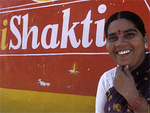Extending women enterpreneurship in India
To reach populations in remote areas, Hindustan Unilever has recruited and trained women in rural areas to act as direct sales operators. This led to the creation of Project Shakti in India which is now being extended to other countries as well.
The Shakti initiative in India started in 2000 and is a micro-enterprise programme that creates opportunities for women to sell a range of affordable Unilever products door to door in rural areas. By the end of 2010, over 45 000 entrepreneurs were selling products to 3 million households in 100 000 villages. For the women involved, Shakti earnings typically double household incomes and boost their sense of self-esteem. Following the completion of a pilot in the eastern state of Orissa in 2010, the Shakti model was extended with the introduction of ‘shaktimaans’ – men on bicycles. Each shaktimaan is given a sturdy bicycle to travel to villages to distribute Unilever products to both consumers and small retail outlets.
The project was then customised and adapted in other Unilever markets such as Sri Lanka, Vietnam and Bangladesh. In Bangladesh and Sri Lanka, it is being promoted as Aparajita and Saubaghya, respectively. There is a similar initiative in Vietnam as well. Unilever Vietnam provides women with extended credit, marketing, sales and accounting training and bicycles and other equipment. Unilever has recently introduced the direct-to-consumer business model in the rural markets of Nigeria and Kenya. It is being considered for other Latin American and African markets.


